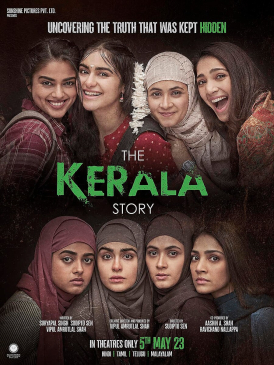More than a few of the “liberal” voices from the West in the commentariat are recessed exclusivists and ethnic supremacists. Aware subconsciously of such a failing, they seek to compensate by going forward with what this columnist talked about more than a decade back as the New Appeasement in the Asian Wall Street Journal. The point was that a different standard was used when talking about the Muslim community, because of the belief that the community was different in its chemistry from other communities. In effect, that the fundamentalist fringe represented most authentically the entire community. Behaviour by elements of this fringe that was fused with elements of theological supremacy were therefore passed off as “normal”, and not subjected to the same scrutiny and reactions as would have been the case with similar behaviour by those belonging to another community. Such a double standard persists to this day, and an example is the near-total absence of comment in publications such as the New York Times, the Washington Post, the (Manchester) Guardian or the Los Angeles Times about the elimination of the Christian, Sikh and Hindu communities in Pakistan, which for several decades rode on the back of US support, but which has since shifted its allegiance to China. The proportion of those belonging to these three faiths in Pakistan has dwindled from almost 40% to less than 2% and falling. Christian, Sikh and Hindu girls in particular are placed under pressure to convert, and in several cases, succumb so as to avoid harassment to their families. Of course, the saga of such women finds little mention in western media, which is absorbed in discovering “impending genocide of the minorities” in Hindu-majority India, a country where fully two of the three sacred sites of that faith (Kashi, Mathura and Ayodhya) remain in the condition they were placed in by Aurangzeb, who was such a cruel despot that he was responsible for the collapse of Mughal rule in India. Under the Right to Education Act passed by the UPA led by AICC President Sonia Gandhi, if a Hindu set up an educational institution, 25% of the seats were in effect to be handed over to the government free of compensation for allotment, a provision not applicable to other communities. Such discrimination has all along been dressed up as secularism, when what that term means is equal treatment by the government to all faiths.
A medley of individuals, some in high positions, condemned the ban on a BBC cut-and-paste attempt at character assassination not just of Prime Minister Narendra Modi but of the country he was elected the Head of Government of. Many of these same individuals are now demanding a ban on the “Kerala Files’’, a movie that in story form tells the tale of a group of girls from Kerala who were tricked by fanatic recruiters into joining Daesh. It is a travesty to call that terror group the “Islamic State”, as it goes against the fundamental prescription of that faith that each believer should show to others mercy, compassion and beneficence, the three divine virtues repeatedly mentioned in the Quran. There were indeed a few young women in Kerala who were honey trapped into joining Daesh, as was the case in several other states in India. Any individual who has studied the functioning of this terror group would have recognized several aspects of its functioning in what was a work of fiction. If anything, the description of the horrors that took place in Daesh-controlled territory in Syria was much worse than what was depicted in the movie. Amazingly, a few state governments banned the screening of the movie on the grounds that it would anger the Muslim community. Such a move reveals a lack of faith in the innate wisdom and moderation of the Muslim community in India that is inexcusable. In effect, those behind the ban on the “Kerala Files” are implying that the movie is not about a small group of fanatics (as can be found in every faith), but adherents of the faith as a whole. This is an insult to a community that in India has distinguished itself by the scholars, businesspersons, administrators and uniformed personnel that it has produced. There needs to be a single standard in matters relating to freedom of creative expression. A climate ought not to be created within India in which any fringe element could file a criminal case against the authors and producers of a work of fiction and get away with it rather than having such efforts dismissed ab initio by the police and the courts. Those who have rushed to ban or block the screening of the movie termed “Kerala Files” have by their intolerance to creative expression lost the moral authority to talk about freedom of expression. As in the western media, where “freedom” means the freedom to slavishly go by the establishment narrative on the Ukraine conflict, for the “Ban Brigade”, “freedom of speech” stops when any view contrary to their own gets expressed.
MDN
Closet Islamophobia behind ‘Kerala Story’ ban
- Advertisement -

